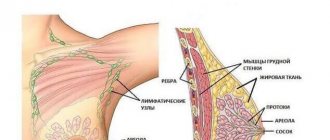Prevention of alcoholism
Alcohol... Almost all of us drink alcohol, some very rarely, exclusively on New Year's or birthdays, and some more often.
And rarely do any of us think about the toxic effect of alcohol on our body, as well as the consequences of its use. Alcohol is a strong psychotropic substance that affects the human psyche and behavior. In small doses, alcohol causes excitement, manifested in an increase in mood, a feeling of joy, and a desire to have fun, but in large doses it leads to severe depression of the brain.
According to statistics, the majority of people who died from external causes, injuries and poisoning were intoxicated at the time of death.
How does alcohol affect internal organs?
Alcohol destroys the liver
(the main function of the liver is to neutralize all substances that are absorbed in the stomach and intestines): as a result of the constant toxic effects of alcohol, inflammation of the liver occurs - alcoholic hepatitis, then a large number of liver cells die and cirrhosis develops. Liver cirrhosis is one of the common causes of death in patients with alcoholism.
Alcohol damages the pancreas
, causing acute as well as chronic pancreatitis. Patients with acute pancreatitis are hospitalized urgently, as surgical intervention is often required to save the patient’s life.
Alcohol damages the heart
, causes arrhythmias, arterial hypertension, disrupts metabolism in the cells of the heart muscle, while some of the cells die and myocardial dystrophy develops (reduction in heart weight).
Alcohol reduces immunity
(the body’s ability to protect itself from infections), so drinkers often suffer from pneumonia, purulent, and infectious diseases.
Alcohol causes skin changes
. Everyone knows the “red noses of alcoholics.”
Alcohol damages the peripheral nervous system
. This is manifested by the characteristic “gait of alcoholics,” in which there is an uncertain slow gait, staggering, and trembling of the fingers.
Alcohol leads to impotence
, to damage to germ cells, as a result, children are born with various disorders in physical and mental development, with various internal and external deformities.
Harm of alcohol to the heart and blood vessels
Ethanol destroys myocardial cells, which leads to the formation of microscopic scar changes and a decrease in the elasticity of the heart muscle fibers. Ethyl alcohol negatively affects red blood cell membranes, causing red blood cells to clump together. Conglomerates (clots) of 200-500 cells are formed that can obstruct the lumen of small vessels, which leads to tissue hypoxia due to insufficient blood flow. The direct consequences of alcoholism are ischemic and hemorrhagic strokes, hypertension, coronary heart disease and myocardial infarction.
How does alcoholism develop?
There are three stages of alcoholism.
The first is the stage of mental dependence.
At this stage, it becomes habitual for a person to drink alcohol in order to forget about troubles and adversities, facilitate contact with others, and relax. A person is constantly looking for a reason, appropriate company, to drink. Control over the amount of alcohol consumed is lost: once a person starts drinking, he cannot stop and reaches a state of severe intoxication. In addition, at this stage, a person’s threshold of sensitivity to alcohol decreases, that is, in order to achieve the desired level of intoxication, he needs a dose 2-3 times larger than before. The gag reflex, which is the body’s defense mechanism during alcohol poisoning, disappears. When a person gets drunk, he loses control of himself, often commits reckless acts, and later cannot remember what happened to him the day before. After alcohol abuse, sleep deteriorates, after drinking, the mood deteriorates, sweating, palpitations, and sometimes hand trembling are noted.
The second is the stage of physical dependence.
Regular alcohol abuse leads to changes in the biochemical processes of the body, as a result of which the regular intake of alcohol into the body becomes necessary for its normal functioning. At this stage, signs of an alcoholic hangover appear and become established. A person, being in a state of hangover, experiences many unpleasant sensations - headache, nausea, sweating, palpitations, anxiety, trembling fingers. In order to alleviate the condition, a person drinks alcohol again - gets a hangover.
From the moment a hangover appears, a person is terminally ill. The only measure that can help stop the disease is a complete abstinence from drinking alcohol in any form.
This can be repeated for several days - 3 days or more. Binges occur. In the absence of alcohol entering the body, a person experiences mental disorders, headache, thirst, loss of appetite, muscle tremors, irritability, and aggression.
The third is the stage of personality degradation.
A person becomes indifferent to family and friends, neglects the most basic rules of morality and ethics, and is indifferent to his behavior. His memory is deteriorating and his intelligence is decreasing. At this stage, people begin to drink “whatever”, as long as the liquid contains alcohol. Drunkenness is constant (daily) in nature or is expressed in binges that stop due to a sharp deterioration in physical condition and often require medical care, without which a person can die. At this stage, the changes that have occurred in the internal organs are irreversible. Alcohol completely destroyed their normal functions.
Consequences for the psyche
Alcohol addiction changes the human psyche. It is often formed against the background of existing problems, which are only aggravated under the influence of alcohol. The first manifestations are related to behavior: irresponsibility, irritability appear, and the state becomes depressed. An addict experiences positive emotions only in connection with drinking alcohol or under its influence.
Alcohol quickly turns out to be the main interest, crowding out hobbies and hobbies. The circle of acquaintances changes. The person becomes withdrawn and avoids communicating with those who do not drink with him.
In severe forms of addiction, after the onset of long-term binges, cognitive functions decrease. Problems begin with remembering new information and performing complex mental tasks. If the patient does not stop drinking at this stage, degradation begins. Alcohol can provoke dementia, hallucinosis, and delirium. A person loses control over his own behavior and can become dangerous to himself and others.
How to avoid becoming an alcoholic?
If you do not have signs of alcoholism, but you drink alcohol often and in large quantities, decide to reduce the amount of alcohol and reasons for drinking. Do not let the situation get out of control if you value your family, work, and your health.
- Avoid companies where large amounts of alcohol are consumed.
- Control the amount of alcohol you drink.
- Do not hesitate to refuse if you are offered a drink.
- Learn to relax in other (non-alcoholic) ways: engage in sports, creativity, tourism or other enjoyable activities.
If you or someone close to you has signs of alcoholism, consult a doctor immediately!
It is very difficult to cope with the disease without the help of a doctor. Remember: to cope with this serious illness, modern treatment methods and the active desire of the patient himself to get rid of the disease are necessary!
What's going on in the family?
If only one of the spouses drinks, without treatment for addiction, the marriage is destroyed. It is impossible to live with a person who is not responsible for his own actions, can disappear from home for days at a time, and is prone to long drinking bouts. If both spouses suffer from alcoholism, codependency may develop. The lifestyle is gradually changing, domestic conflicts often arise, relationships become unhealthy. Such a marriage may not collapse, but it is difficult to call it a family.
If an alcoholic has children, addiction traumatizes them. In some cases, a feeling of protest, resentment, anger appears, and the grown child stops communicating with the parent. In others, he copies his father or mother, considers alcohol consumption and antisocial behavior to be the norm. In this case, a family “tradition” of drinking alcohol is formed, and children degrade much faster than their parents.
Other relatives of an alcoholic may suffer from his addiction if they have to solve problems caused by alcohol: take the patient away from the police, compensate for the damage he caused.
Order alcoholism treatment
We work around the clock, experienced doctors, 100% anonymous.
Where to go for help?
To help patients with alcoholism, as well as other types of drug addiction, there are specialized institutions in our country - drug treatment clinics. Each dispensary serves a specific area. People living in the area can go there on their own or with the referral of other specialists. They and their relatives will be provided with:
- advisory assistance
- examination
- treatment
Doctors working in dispensaries conduct examinations of patients, medicinal treatment and psychotherapy, and bring patients out of a hangover. Physiotherapeutic procedures are widely used.
Signs of psychological diseases and disorders that alcohol provokes
Substances contained in alcoholic beverages can cause significant harm. Their effect on the body can be noticed in the first minutes after drinking alcohol. The person immediately experiences a decrease in concentration. He perceives reality differently. Even drinking a small amount of alcohol affects the psyche. If you systematically drink 1-2 glasses of wine, alcoholism may develop. The effects of alcoholic beverages on a person can manifest themselves in:
- inadequate perception of what is happening around;
- inability to think logically;
- inability to calm down.
If you constantly drink alcohol, a person will experience insomnia. Patients often experience mood changes. Often, alcoholics suffer from headaches that do not go away for a long time. Poor health is especially pronounced during the first days after giving up drinking. Alcohol has a destructive effect on brain cells. As a result, fatigue increases. A person begins to get tired even from minor physical activity. Typically, the above symptoms are accompanied by the formation of addiction. It can be difficult to get rid of it later.
Content:
- What is alcoholism and its consequences
- Diseases of internal organs caused by alcoholism
- Alcoholic psychoses
- Personality degradation
- Treatment of alcoholism and its consequences
Alcohol addiction is a chronic progressive disease. Constant alcohol intoxication leads to destructive changes in organs. In patients, the nervous system is affected and the psyche suffers. If this disease is not cured, the patient will inevitably face many severe pathologies leading to premature aging and early death. To avoid the consequences of this disease, you should undergo therapy as early as possible and begin to lead a sober life. The most important thing is to show the will and desire to recover.
Damage to the nervous system during long-term alcoholism
The negative impact of alcohol on the nervous system is well known: damage to the nerve trunks is called alcoholic neuropathy , and damage to brain tissue is called alcoholic encephalopathy . The patient suffers from visual, auditory and tactile hallucinations, insomnia or nightmares, delirium - “delirium tremens”. Encephalopathy is characterized by tremors and muscle twitching, loss of coordination, and convulsions.
Most alcohol abusers develop polyneuropathy , which in its final stages leads to ulcerative defects on the extremities. Symptoms of polyneuropathy include pain in the legs and arms, burning of the soles, and a feeling of numbness. The patient walks staggering, experiences constant weakness and muscle atrophy.
Next on the list is alcoholic myopathy , which develops with prolonged use. The patient experiences progressive muscle weakness, pain on palpation of the muscles, especially in the areas of the upper limbs and pelvic girdle. In advanced cases, even necrosis is possible.










